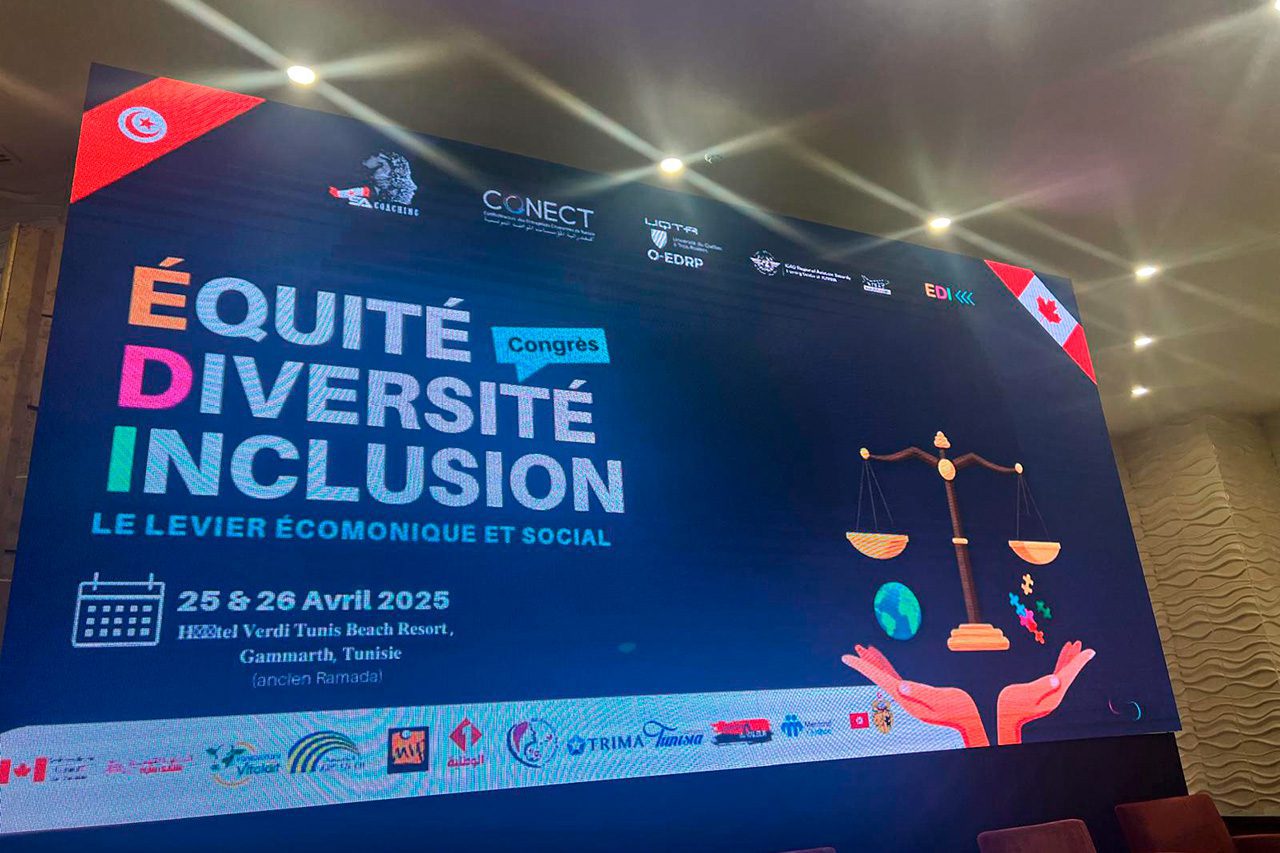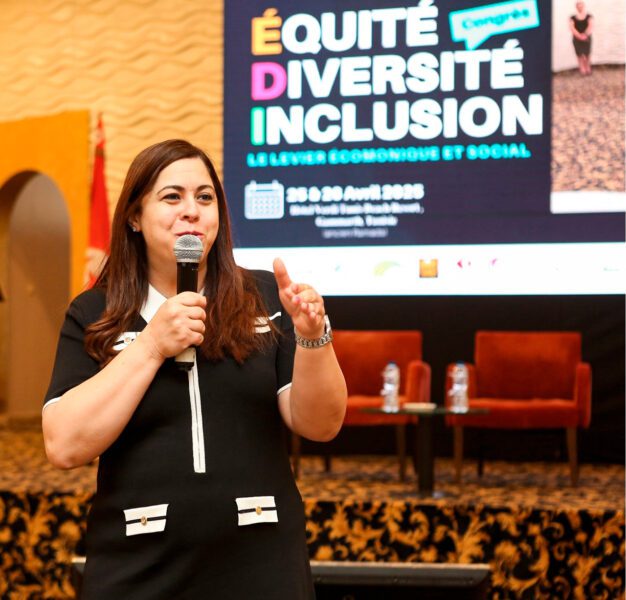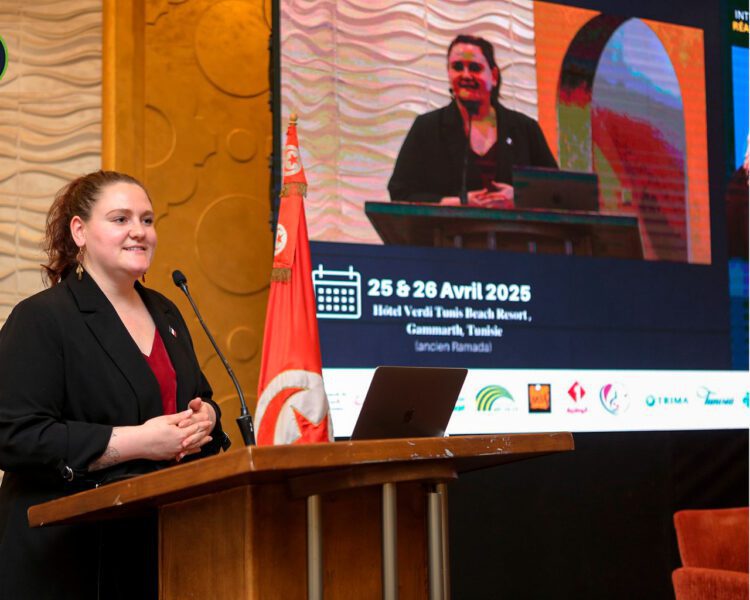Are There Business Opportunities in Hong Kong’s Carer Economy?
Four impact founders tell their stories

At Tunisia’s first international EDI summit, Canada and its diaspora signal a new model for inclusive, resilient leadership in a fragmented world.
Recent months have seen a dramatic retreat from Equity, Diversity, and Inclusion (EDI) values in the United States. Within hours of beginning his second term, President Donald Trump issued an executive order slashing EDI programs across federal agencies, framing long-standing corporate commitments to inclusion as “illegal and immoral.”
The shock was immediate. High-profile companies like IBM, Google, Constellation Brands, and Target quickly began scaling back or dismantling their EDI efforts, citing political pressure, legal uncertainty, and shifting business priorities. What once symbolized corporate responsibility has now become a political battleground.
This backlash, however, is driven far more by ideology than by economics as the evidence tells a different story. Numerous studies, including from the World Economic Forum and the IMF, show that organizations with inclusive policies consistently outperform those that do not — both financially and in innovation. Inclusive companies are not only more profitable; they are also more resilient to economic shocks, better at attracting top talent, and more capable of adapting to global change. Yet political forces continue to weaponize inclusion for short-term ideological battles — risking long-term prosperity and social cohesion in the process.
As the U.S. pulls back, Canada is stepping forward as a leading alternative on equity, diversity, and inclusion — perhaps a quiet response to President Donald Trump, who once suggested that Canada would “cease to exist” without U.S. economic support and even proposed that it become the 51st state of the United States.
In today’s interdependent world, the global is increasingly local, and diasporas play an essential role as bridges linking continents, cultures, and economies.
Like the US, Canada was built on immigration, multiculturalism, and strong community values. But where the new American administration has demonised diversity, Canada has long treated diversity not as a problem to manage, but as the foundation of its national identity. Where others now hesitate, Canada reaffirms that diversity is not a threat — it is a strength.
Against this shifting global backdrop, Tunisia hosted its first International Congress on Equity, Diversity, and Inclusion from April 23 to 28, 2025 — a timely move bringing together leading voices from both Canada and Tunisia.
One might wonder what brought Canada all the way to Tunisia — two nations separated by thousands of miles. The answer, in part, lies in the connective power of its diaspora. In today’s interdependent world, the global is increasingly local, and diasporas play an essential role as bridges linking continents, cultures, and economies. Nowhere is this truer than in the shared efforts around equity, diversity, and inclusion (EDI), where transnational communities are helping to drive collaboration and shared progress.
Like many nations today, Tunisia faces economic hardship, political uncertainty, and a growing wave of emigration. Yet, rather than retreat inward, Tunisia’s vibrant and dynamic diaspora — particularly in Canada and Europe — has become a vital bridge, linking local aspirations to global ideas, networks, and best practices. Often, it is members of this diaspora — especially women — who emerge as powerful agents of change, challenging the status quo and bringing back home the best of their hosted country.

Dr. Sana Arfaoui, Tunisia EDI Summit organizer
For Dr. Sana Arfaoui, President of the Congress and a prominent figure within the Tunisian diaspora in Canada, the mission is deeply personal. “Equity, diversity, and inclusion are part of our DNA as Tunisians,” she said. “We are not starting from scratch. We are reconnecting with our true values.” She mentioned that these values, have long been embedded in Tunisian society — but were often overshadowed by short-term interests and the relentless pressures of capitalism, where immediate gain sometimes took precedence over building inclusive, sustainable communities.
Sana Arfaoui Tunisia’s legislative framework for EDI adopted in 2018, which criminalizes racial discrimination and protects diversity and inclusion, has already laid a strong foundation and provides an important starting point. However, as Dr. Arfaoui and many speakers emphasized, laws alone are not enough. She explained that what we need is courageous leadership, everyday actions, and communities willing to see diversity not as a threat, but as a driving force for prosperity. The deeper challenge in Tunisia or Canada lies in embedding EDI into the fabric of daily life — from startups to multinational institutions, from the streets of Tunis to the villages of the interior.
One of the central themes of the Congress was the critical role of Human Resources (HR) in leading this transformation. Reanne Cooper, Municipal Councillor and Sustainable Development Advisor in Nova Scotia, mentioned that in Canada, “diversity is not a slogan; it’s the heartbeat of the nation.” Without diversity, she said, there would be no innovation, no real progress — and indeed, Canada’s own prosperity is a testament to that truth.

Reanne Cooper, Municipal Councillor and Sustainable Development Advisor in Nova Scotia
Embedding EDI into corporate cultures, aligning business strategies with the UN’s Sustainable Development Goals (SDGs), and fostering workplaces centred on well-being, environmental responsibility, and human dignity were highlighted as existential imperatives for businesses today.
Practical workshops during the Congress demonstrated that even small organizations, startups, and social enterprises can become pioneers — using design thinking, intentional leadership, and shared values to integrate EDI from the very start.
In the future, the organizations that succeed will be those that build inclusive cultures.
Despite their different histories and contexts, Tunisia and Canada stood united during the congress by a shared conviction: The future belongs to those who lead with courage, humanity, and vision.
Both countries demonstrated that inclusion is not just an ethical imperative — it is a strategic necessity for building resilient, prosperous societies.
The path forward was clearly outlined:
At a time when some of the world’s largest economies slide backward into fear and division, Tunisia and Canada sent a powerful and hopeful message from Tunis: A more inclusive, sustainable, and human-centered future is not only necessary — it is already being built. It is not an option; it is the only way forward.
The International Congress on EDI in Tunis was not a conclusion; it was a beginning. Dr. Sana Arfaoui expressed the hope that the Congress would become a regular platform for consultation, follow-up, and shared learning, bridging local initiatives and global momentum.
Related Content
Comments
Deep Dives
RECENT
Editor's Picks
Webinars
News & Events
Subscribe to our newsletter to receive updates about new Magazine content and upcoming webinars, deep dives, and events.
Become a Premium Member to access the full library of webinars and deep dives, exclusive membership portal, member directory, message board, and curated live chats.
At Impact Entrepreneur, we champion fearless, independent journalism and education, spotlighting the inspiring changemakers building the Impact Economy. Diversity, equity, sustainability, and democracy face unprecedented threats from misinformation, powerful interests, and systemic inequities.
We believe a sustainable and equitable future is possible—but we can't achieve it without your help. Our independent voice depends entirely on support from changemakers like you.
Please step up today. Your donation—no matter the size—ensures we continue delivering impactful journalism and education that push boundaries and hold power accountable.
Join us in protecting what truly matters. It only takes a minute to make a real difference.
0 Comments